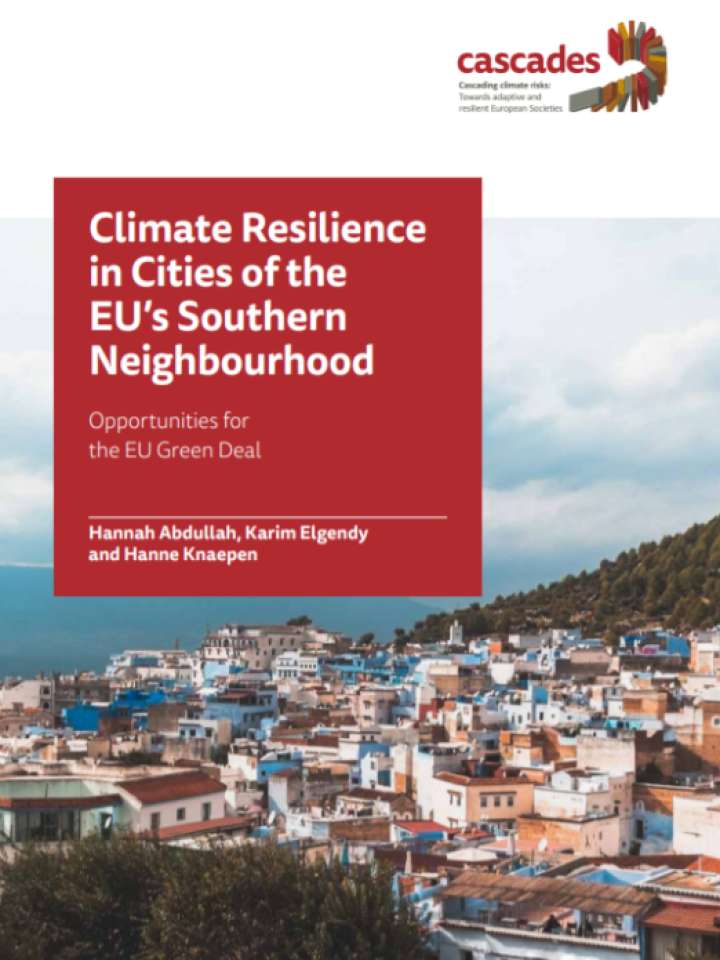Climate resilience in cities of the EU’s southern neighbourhood: Opportunities for the EU Green Deal
This study examines climate vulnerabilities in urban areas in countries to the south of the EU and the wider Middle East and North Africa region and advocates for systemic approaches to addressing urban climate resilience by strengthening the water-energy-food nexus, as well as other enabling factors such as decentralization. Cities in the Middle East and North Africa are already suffering the effects of climate change. Weak urban regulation, ineffective climate policies, limited decentralization and insufficient empowerment of local authorities and civil society further decrease urban resilience. Future climate scenarios and projected urban growth threaten the stability of the region; with potential negative knock-on effects on Europe.
This study suggests that the EU’s overwhelming focus on supporting cities in the region with energy efficiency and the transition to sustainable energy systems is not enough to strengthen urban climate resilience. In cities of the Southern Neighbourhood, which typically struggle with resource management and scarcity, climate resilience will increasingly depend on local capacities to formulate and implement nexus approaches, especially in the water, energy and food sectors. The European Green Deal and its ambitions for systemic transformation could benefit from stepping up cooperation with cities in the Southern Neighbourhood around the water-energy-food nexus.
Explore further
